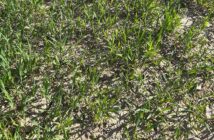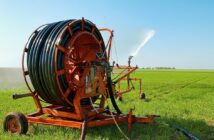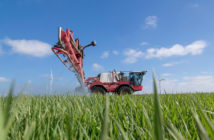The AHDB Cereals & Oilseeds Monitor Farm network met for the second year running this November at Horwood House, near Milton Keynes.
The 24-hour conference featured presentations from Monitor Farm hosts and technical experts which sparked discussions and debate on topics ranging from yield and soil health to business skills and weed management. It was all with the aim to help those in attendance to learn from each other’s experiences and build stronger businesses.
Susannah Bolton, AHDB Director of Knowledge Exchange, said: “This event is a real highlight of the year. Reflecting on the political events of the year, it’s clear that the negotiations ahead of us may take a long time. The important thing is how UK agriculture remains competitive, and in order to remain competitive, we need to think about our own costs of production. But most of all, we need to be resilient.
“The Monitor Farm environment is a fantastic place to talk about risks and new opportunities. Monitor Farms are an important asset to us as AHDB and the wider industry, placing research outputs within a context of farm businesses. It puts new innovation into context. It’s about placing the farmer at the centre of everything we do.”
Three of the Monitor Farm hosts shared their experiences on reducing fixed costs, improving yields, weed management and soil health.
Yield
Brian Barker, Stowmarket Monitor Farm host, told the network how he and his Monitor Farm group had recently established the ‘Stowmarket Yield Club’ with other local growers with the aim to benchmark their crops against each other.
Brian Barker: “Taking part in the Yield Enhancement Network (YEN) competition showed me that I needed to look further at all of my crops, and I asked myself how I could get better. I currently get just 62 per cent of my theoretical yield potential. This difference in yield, a potential 6.2t/ha could have got me an extra £744/ha.
“A variety of things could have caused this loss in yield: not enough roots, or perhaps a lack of sunshine or rain. There must have been a missing link somewhere. I’d also like to work out where I could have saved money on inputs.
“I’m keen to put numbers to things we haven’t counted so far. For example, counting; crop establishment, shoot numbers, tiller numbers throughout the year from which we can get more information to use to calculate our yield potential and benchmark against. I found this year that with my disc drill I budgeted for 25 per cent field loss and actually lost 31 per cent for the wheat planted in a no-till situation, so my potential is already lower than I hoped so I need adjust my agronomy accordingly.”
“We need to farm to potential, not to hope.”
Fixed costs
Richard Reed of Berwick-upon-Tweed Monitor Farm and his team specialise in running older machinery, making the most out of machines that other farmers might pass by. The work pays off, though, as Richard’s entire farm equipment cost just over £600,000, but the equivalent new machinery would have cost more than £1 million.
Richard was inspired by a presentation on controlled traffic farming (CTF) given by Wantage Monitor Farmer Julian Gold at the AHDB Monitor Farm conference last year and wanted to reduce his cultivation costs.
He said: “My primary aim is to get the big machinery running on the same wheelings. I’m using old equipment but new techniques to try to keep costs down.”
Richard reduced the depth and number of cultivations in order to reduce fuel costs, and is trying to do as much as possible in CTF without buying GPS equipment.
“Our first CTF field highlighted issues with the soil, which we can avoid with better management. We found some problems with volunteers but we’re very pleased with the winter barley. It’s definitely a learning process, however, we definitely can grow crops effectively with older equipment.”
Weed control
With farms represented from Cornwall up to the Black Isle, the delegates’ experience of black-grass varied greatly, although the threat of the weed remains large for all farmers.
Huntingdon Monitor Farm host Russell McKenzie who farms in Cambridgeshire, said: “Black-grass is the biggest challenge we have, in terms of profitability. It’s ripping yield out of the crop in the worst situations and it seemed that some tillage techniques used were making the situation worse.
“At my farm in Cambridgeshire we have had to adopt a whole farm approach. We can’t spend our way out of trouble, and it seemed to us that cultivations were making the situation worse.
“My primary aim is to reduce my herbicide costs. I’ll widen rotations and shift away from cultivations, but what I do will be pragmatic, and I know I’ll need flexibility in my systems.”
Russell was also an AHDB-sponsored Nuffield scholar and told the group how data on low disturbance, disc-based drills he’d seen in the US and Australia led to 92 per cent less weed germination.
Get involved
Paul Temple, AHDB Cereals & Oilseeds chair, said in closing the conference: “I’d like to praise the high degree of honesty at this event. Monitor Farms are a great way of learning practical information at a local level, and we’ve experienced this here at the conference.”
To find a Monitor Farm near you, or to apply to become a new Monitor Farm host, visit cereals.ahdb.org.uk/monitorfarms




